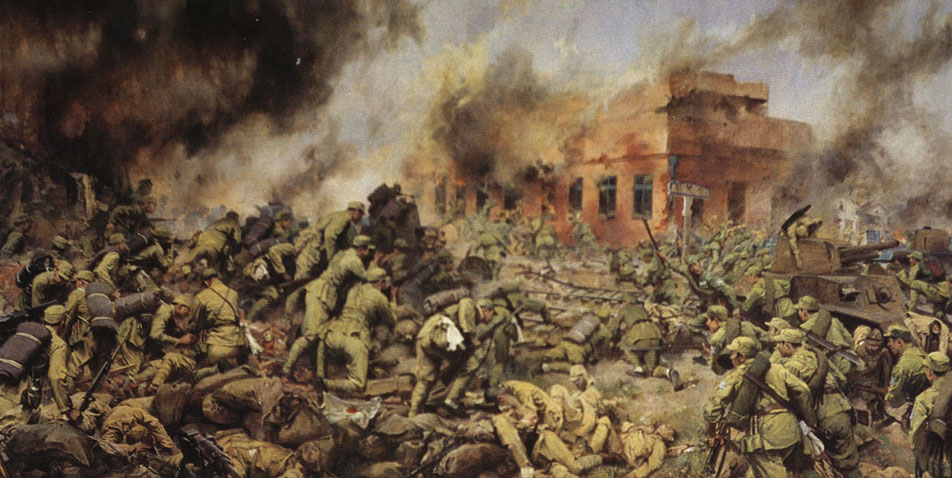WWII victory led to nat'l rebirth

The victory over Japanese aggression put an end to the constant setbacks the Chinese people suffered in fighting against imperial powers.
Honoring the 70th anniversary of China’s victory in the War of Resistance against Japanese Aggression, scholars set a high value on the achievement, hailing it as a turning point to realize the great rejuvenation of the Chinese nation.
“The victory over Japanese aggression put an end to the constant setbacks the Chinese people suffered in fighting against imperialist powers. It was the first full victory in their anti-aggression struggle, marking the beginning of China's climb out of its rut,” said Zang Yunhu, a history professor from Peking University.
Zheng Dahua, a research fellow from the Institute of Modern History at the Chinese Academy of Social Sciences, interpreted the milestone victory in the following three ways:
First, by defeating Japan, China recovered Taiwan, the Penghu Islands and nearby islands, including the Diaoyu Islands, which were ceded to Japan in the First Sino-Japanese War (1894-95), and annulled all unjust treaties.
Second, China's remarkable contributions to the world anti-fascist war changed global opinion of the nation, especially in the West. It reclaimed world power status and became a founding member of the UN and a permanent member of the Security Council.
Third, the rapid growth of the Communist Party of China (CPC) and the people’s armed forces under its leadership paved the way for the ultimate victory of the New Democratic Revolution and the founding of the People’s Republic of China (PRC).
A major theater in the East during World War II, China was the first country to engage in the war and fought for the longest. On Jan. 1, 1942, China joined the United States, the United Kingdom and the Soviet Union to sign the Declaration by United Nations.
“The signatory identity indicates China had been recognized as one of the four world anti-fascist powers by the Allies at that time, and edged its way from the fringe to the center of the world stage,” said Hu Dekun, a senior professor at Wuhan University and president of the Chinese Research Association of History of the Second World War.
The rising international standing of China also exerted profound influences on the postwar world pattern. “By taking part in founding the UN and establishing itself as a founding member with a permanent seat on the Security Council, China reconnected itself with the world as a major power. With a firm grip on its fate, the Chinese nation has been worthy to stand proudly in the family of nations ever since,” said Lu Yi, a professor from the Teaching and Research Department at the Party School of the Central Committee of the CPC.
“The War of Resistance against Japanese Aggression also prepared revolutionary forces for the founding of the PRC,” Hu said. The CPC and the people’s armed forces it led constituted a primary force in battles against the Japanese, laying a solid foundation for victory in the subsequent civil war and the founding of the PRC, he added.
“Standing at a new historical starting point and recalling the past in light of the present, we can always get enlightened by the victory in the war against Japan,” Lu said.
History has proved incontrovertibly that only by sticking to the leadership of the CPC can the Chinese nation create a better future. Today, as the whole nation strives for great rejuvenation, we are closer than ever to the goal and more confident and capable of attaining it, Lu said.
Tang Hongli is a reporter at the Chinese Social Sciences Today.

 PRINT
PRINT CLOSE
CLOSE